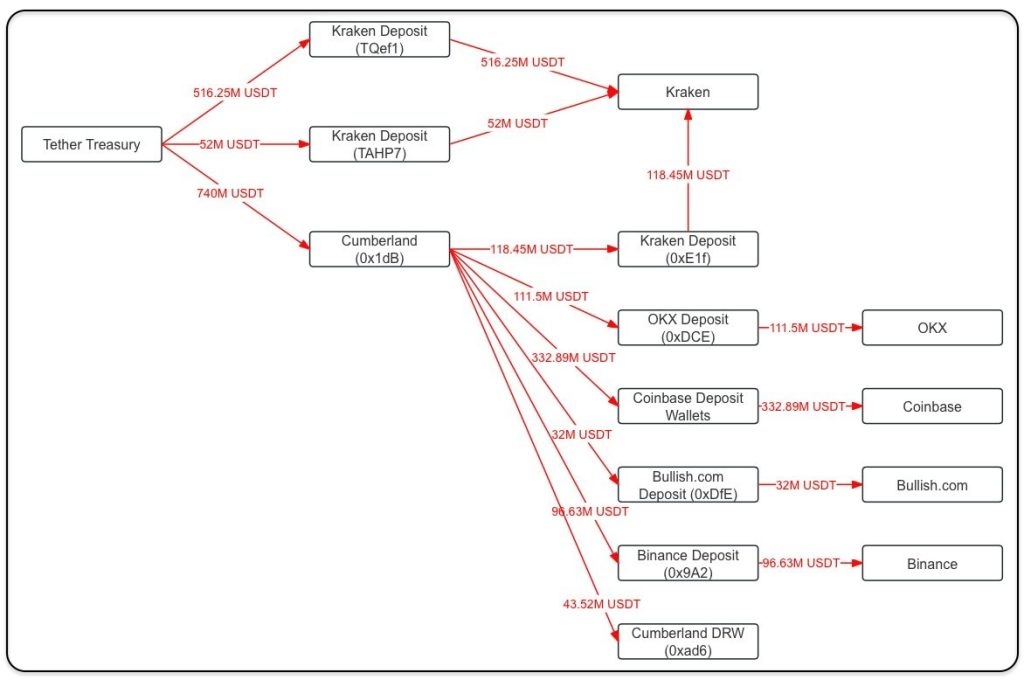
Tether (USDT), one of the most popular stablecoins in the crypto world, is facing a big danger. The European MiCA (Markets in Crypto Assets) regulations are making things tough. These new rules could seriously impact Tether’s operations in Europe. Paolo Ardoino, CEO of Tether and CTO of Bitfinex, explains that MiCA is putting strict limits on the volume and issuance of stablecoins. It also requires that 60% of stablecoin reserves be held in cash deposits within banks. The problem? These cash deposits are uninsured over €100,000. This could lead to massive bank runs, causing instability for both stablecoins and traditional banks.
A Symptom of Failing National Economies
In an interview with Cointelegraph, Ardoino shared his thoughts. He said that the success of USDT shows the failures in many national economies. Tether gives people an alternative when their economies are struggling. Take Japan, for example. The stock market there is crashing, and the yen is unstable. Governments and central banks have been printing too much money. This has led to economic instability. That’s the reason more people are turning to crypto and stablecoins like USDT.
Tether’s Strategy and Compliance Efforts
Despite the tough roads, Tether isn’t backing down. The company is actively talking with European regulators to amend these new regulations. Ardoino pointed out that Tether isn’t alone in facing these challenges; even their main competitors are concerned about the same issues. Ardoino is hopeful that through these conversations, they can work out a regulatory framework that’s both safe and practical. Meanwhile, they are planning to grow their Tether team to 200 employees by the middle of next year. The main focus will be on powering up its compliance team. This move reflects how serious they are about tackling any issues related to illicit activities involving its stablecoin.
Achievements and Future Prospects
Even while facing all these challenges, Tether is making impressive progress. USDT recently hit a historic milestone by surpassing $115 billion in circulation supply. Last week, its market cap jumped by more than $1 billion. This happened at the same time when Bitcoin’s price shot up to $62,000. According to Lookonchain, $1.3 billion worth of USDT was shifted to major exchanges like Kraken, OKX, and Coinbase. This surge has helped USDT solidify its place as a dominant player in the stablecoin market which now holds around 70% of the market share.

According to Tether’s transparency page, over 50% of its supply is on Tron. Around 41% is on Ethereum. Tether also reported record profits of $5.2 billion in the first half of 2024. This is impressive, especially considering Tether has a smaller workforce than other tech and crypto giants.
Tether is promoting blockchain education. It has partnered with the Africa Blockchain Institute. This collaboration aims to educate students across five universities in the Ivory Coast about blockchain technology. This also includes education related to cryptocurrencies, smart contracts, DeFi, and industry applications.
Conclusion: Facing Challenges and Celebrating Wins
The new MiCA regulations are throwing some big challenges at Tether and the stablecoin market. The tough rules about reserve requirements could raise risks and make USDT’s future in Europe a bit shaky. But even with these obstacles, Tether has shown it’s tough and committed to pushing forward. The company’s achievements speak volumes about its resilience and drive for innovation. As the crypto world deals with these changes, it’s important for both companies and regulators to keep talking. Watching how Tether handles these regulatory issues will be key for anyone invested in the crypto scene.
Also Read : Gemini and Coinbase Clash with CFTC Over 2024 Presidential Betting Ban!
